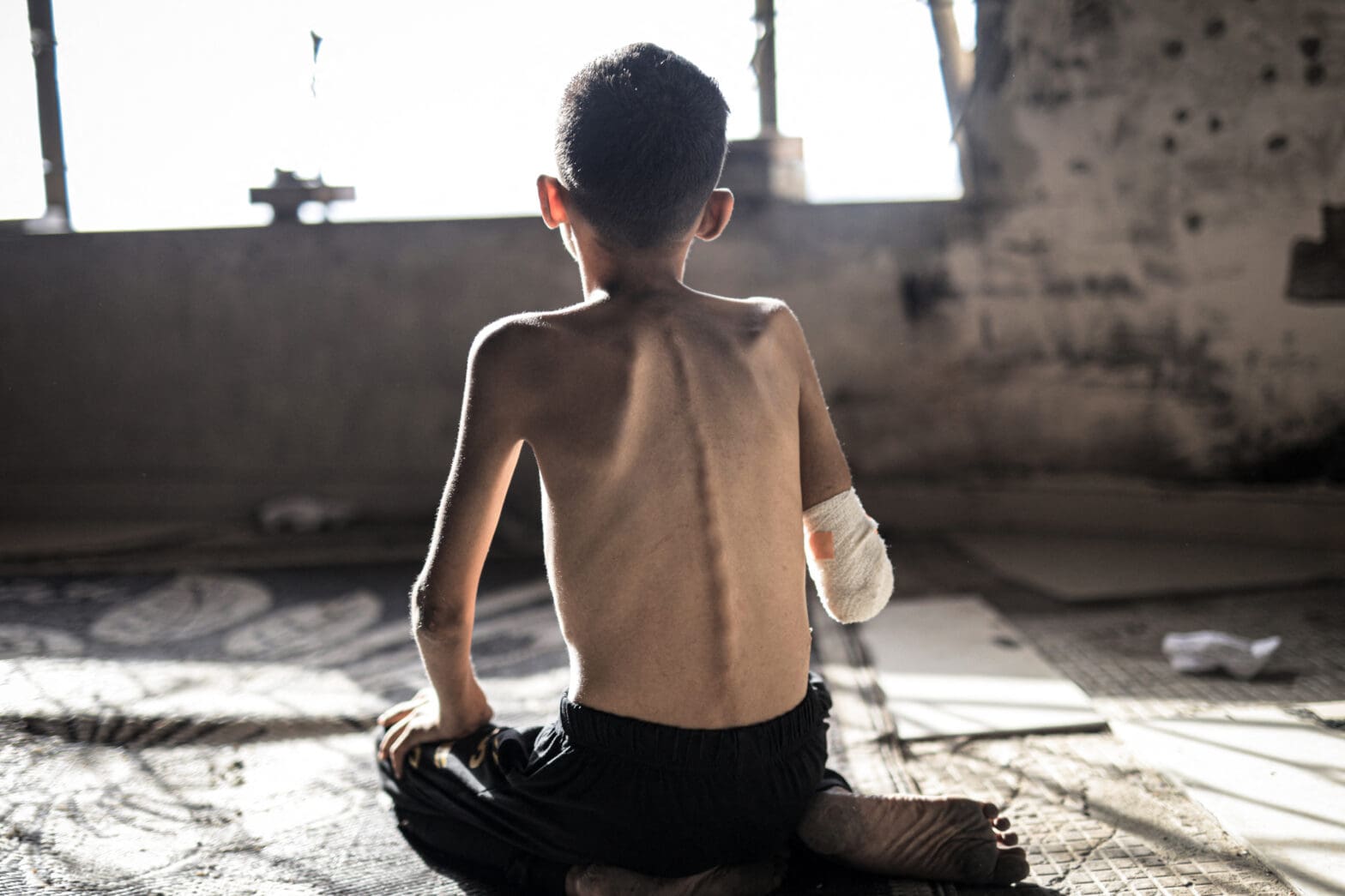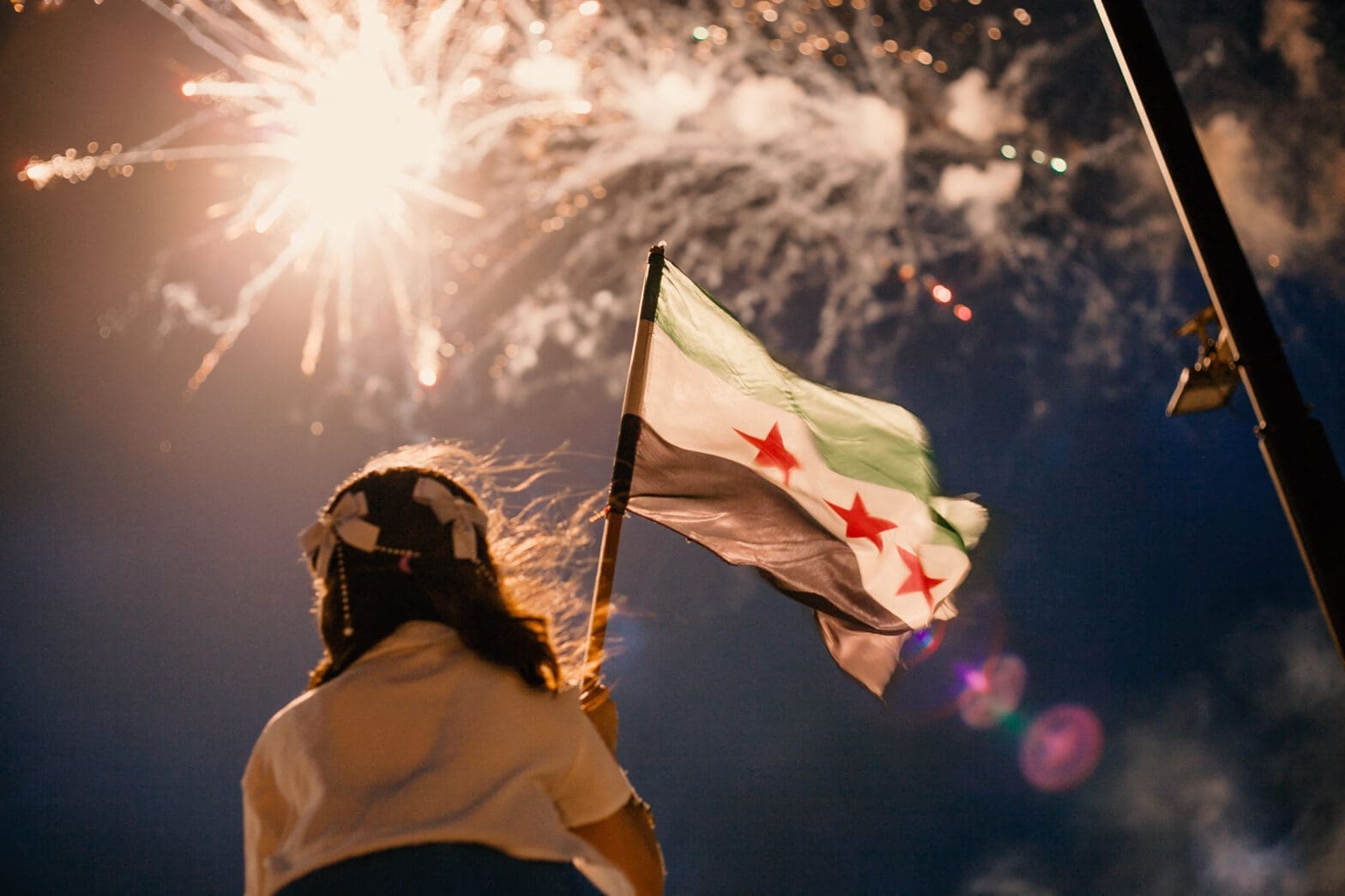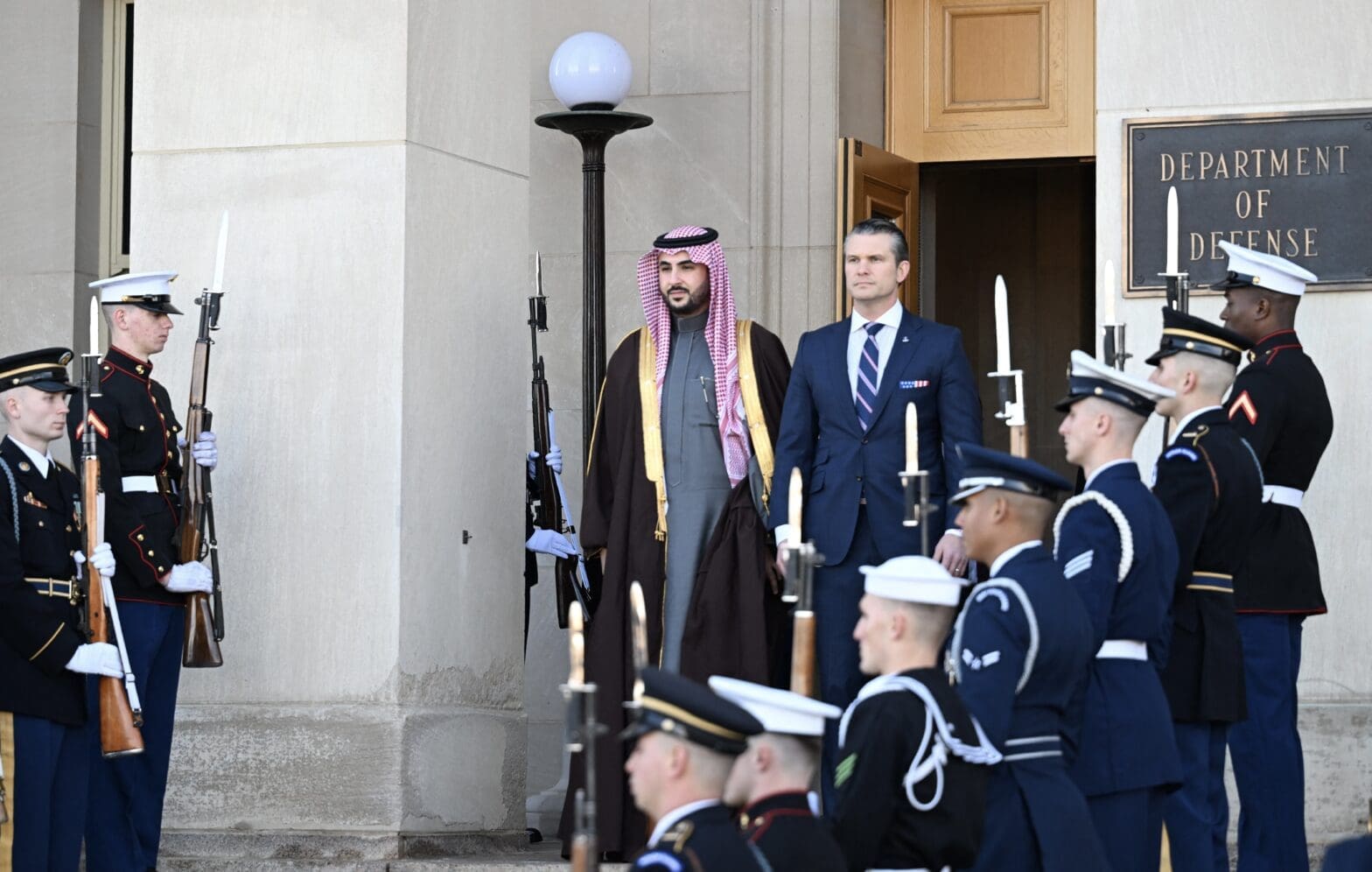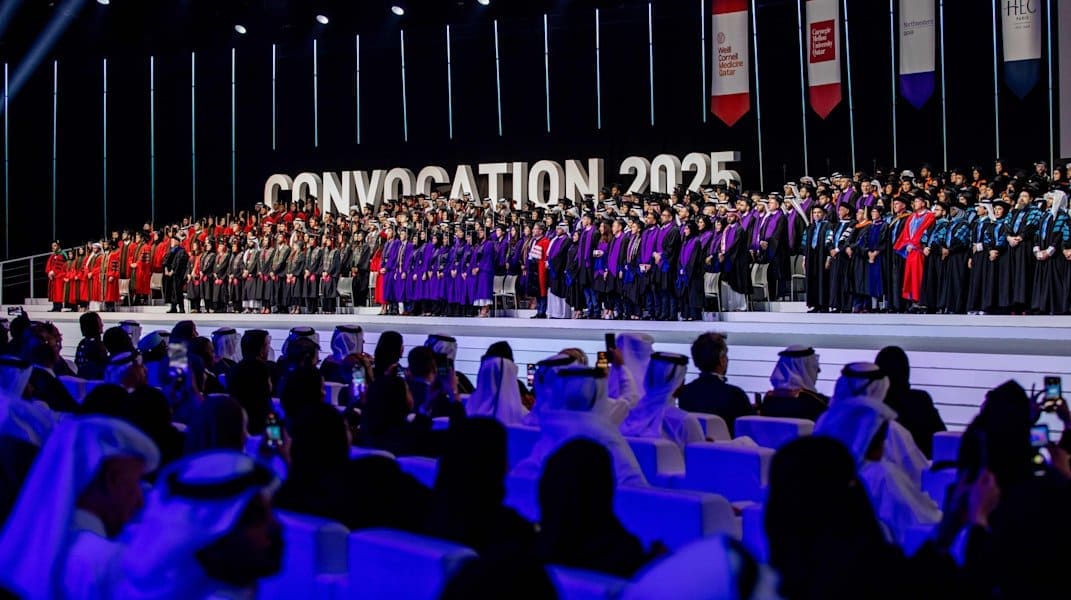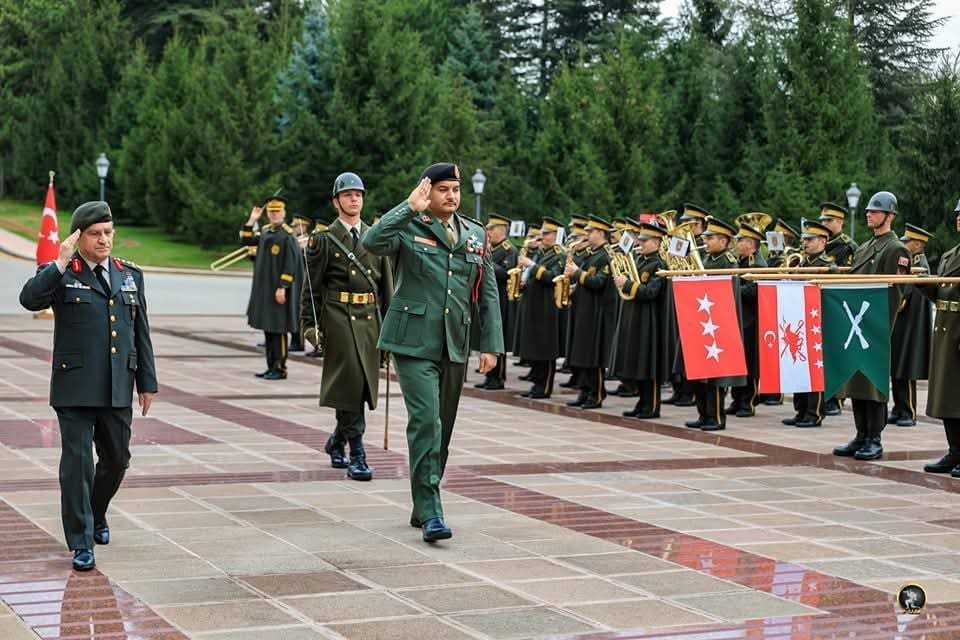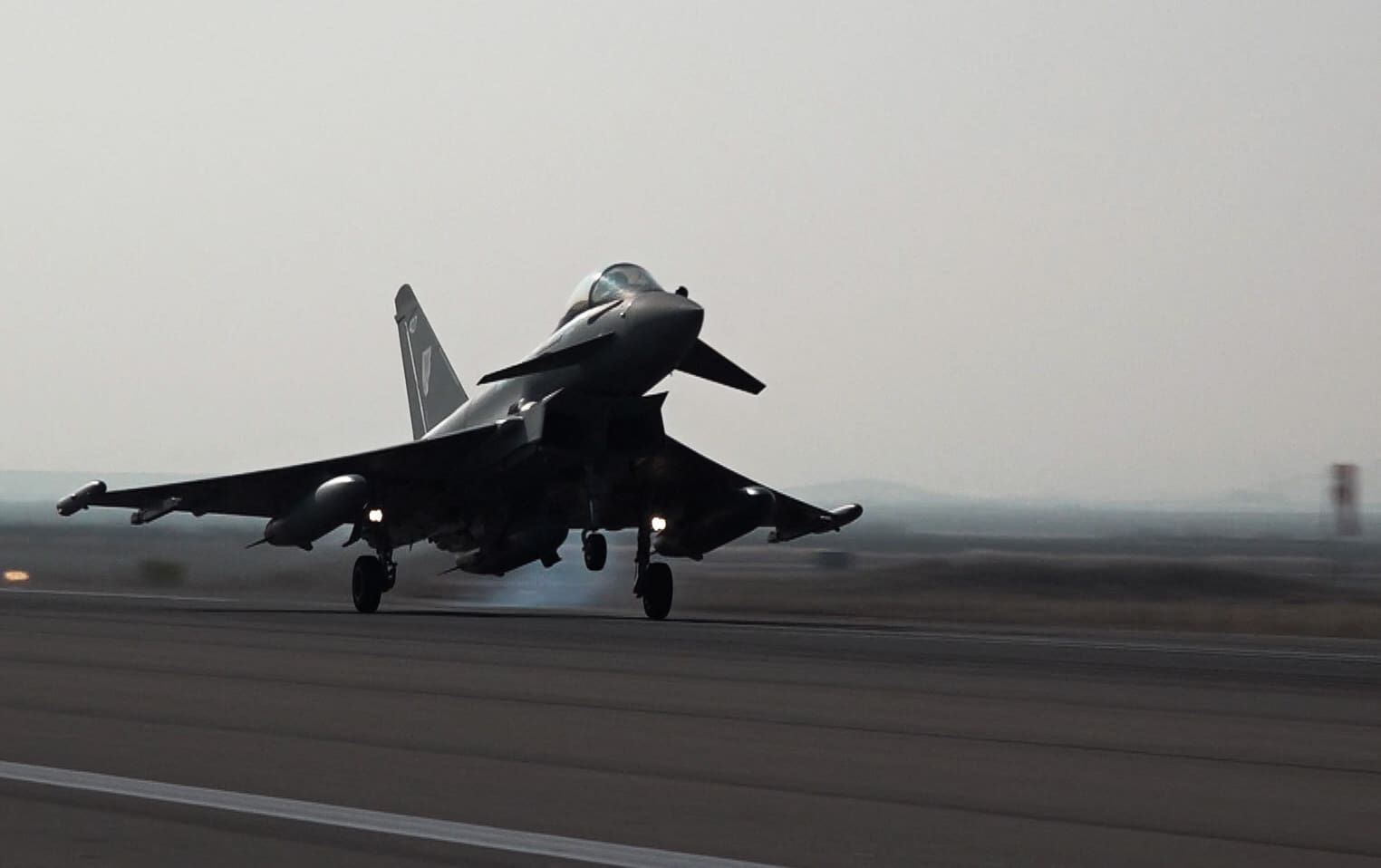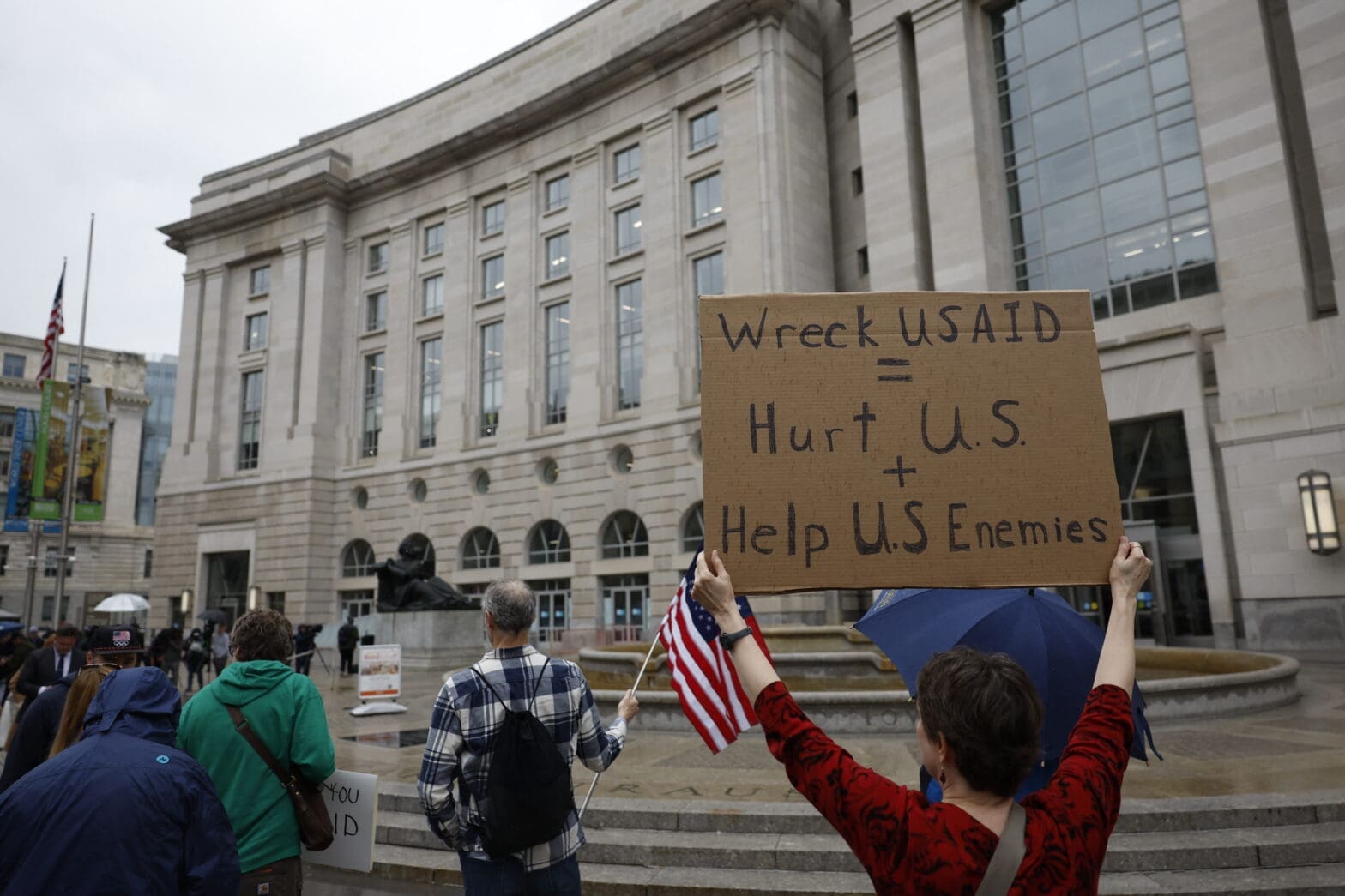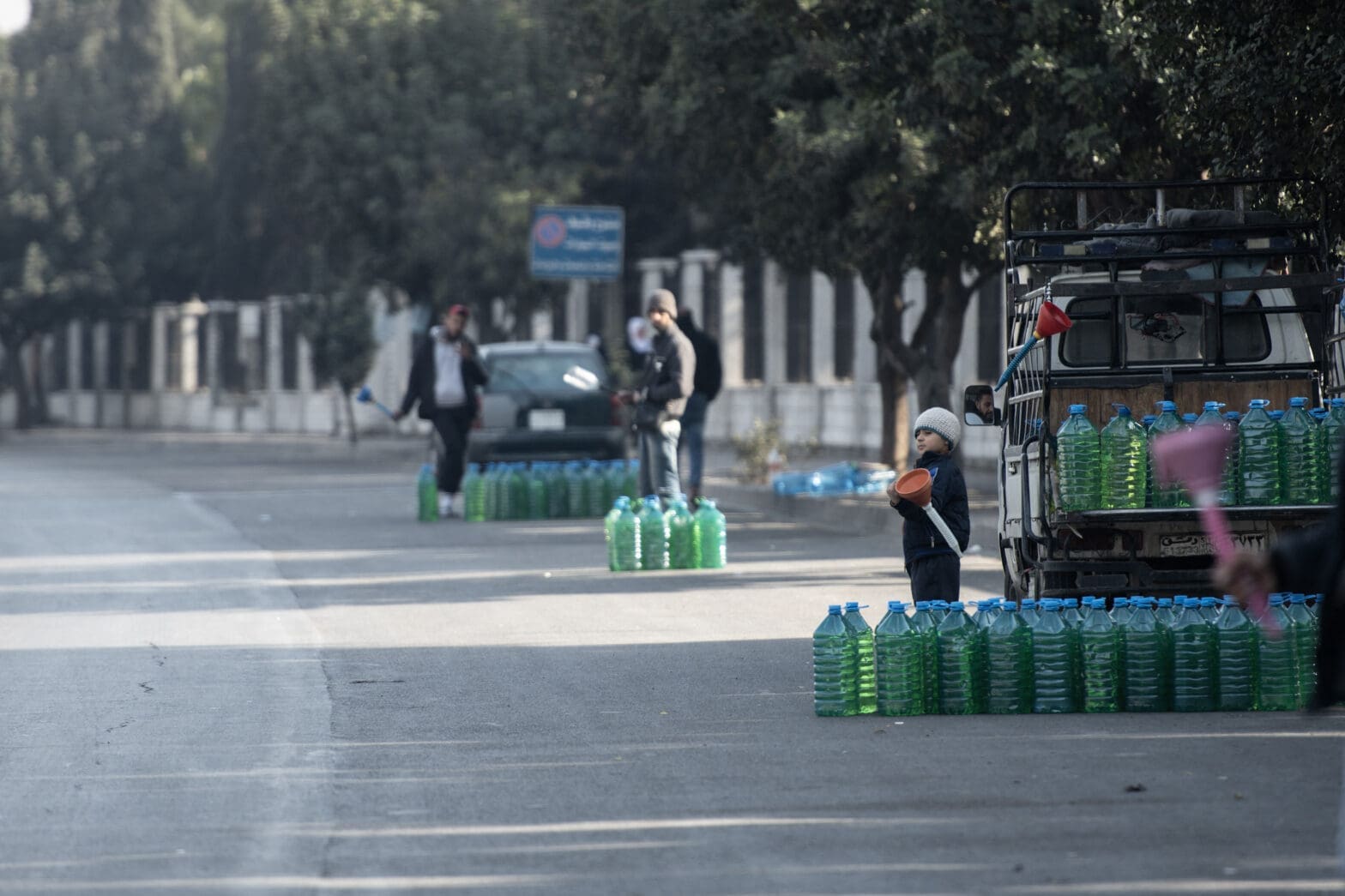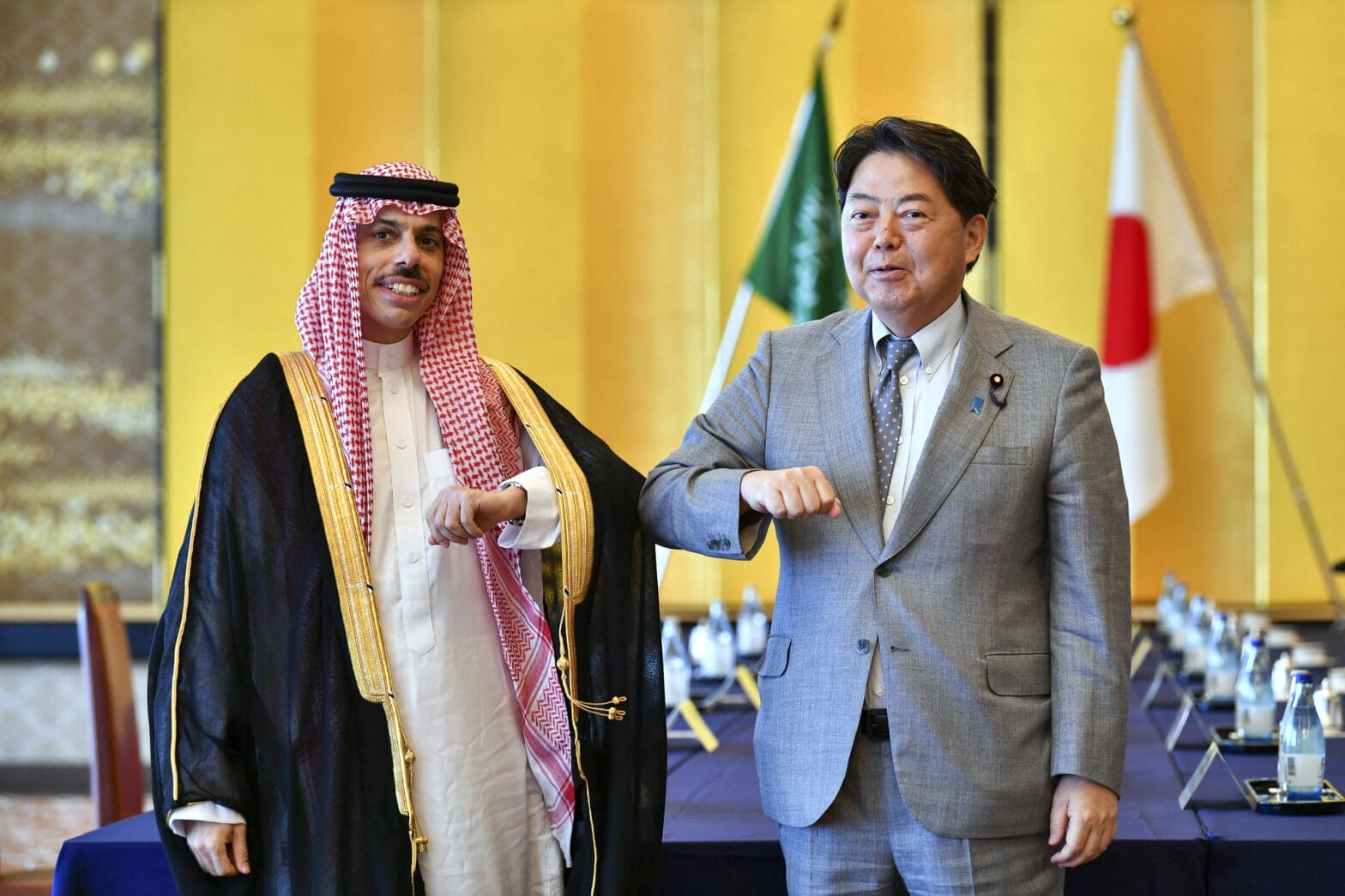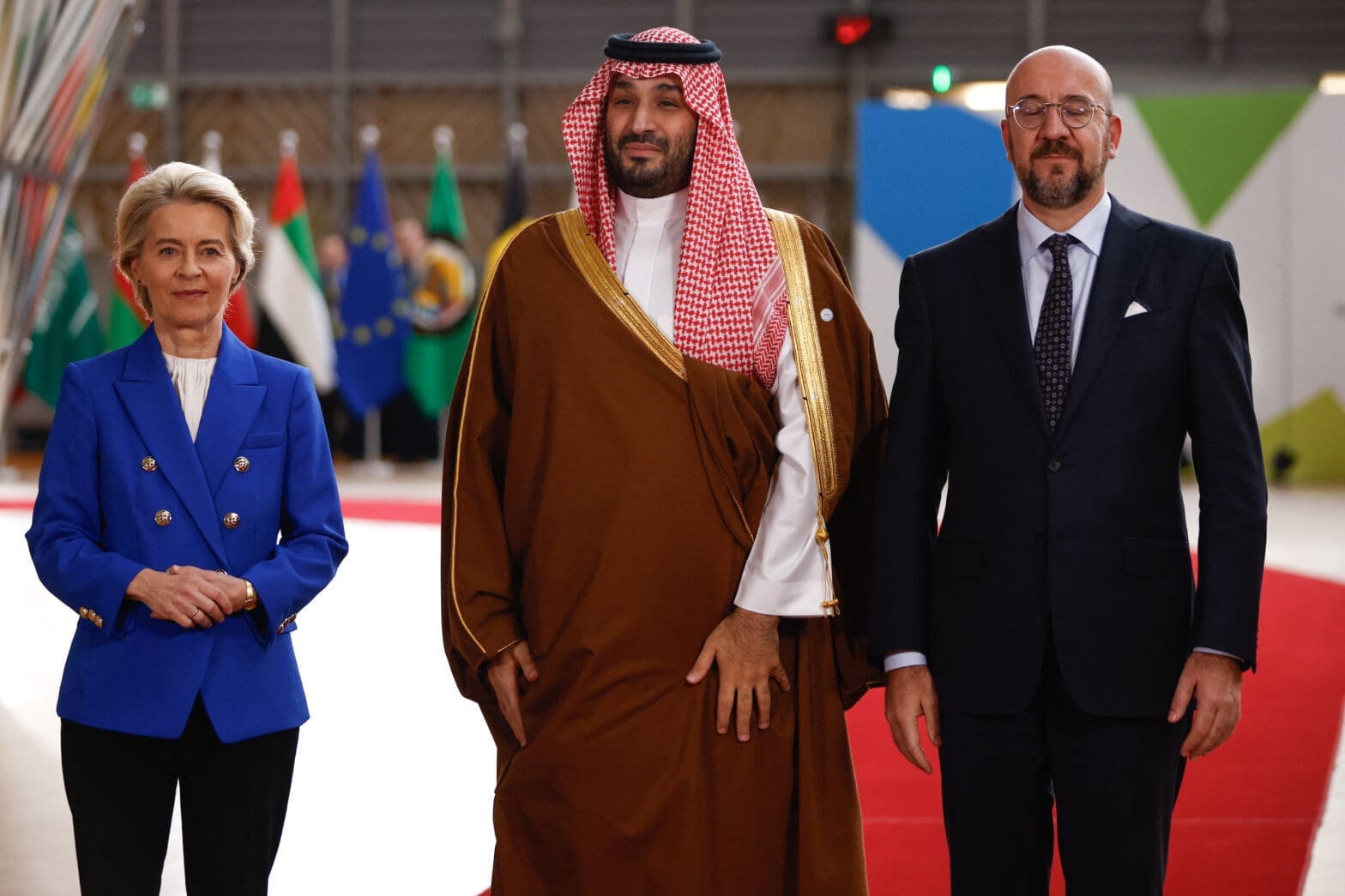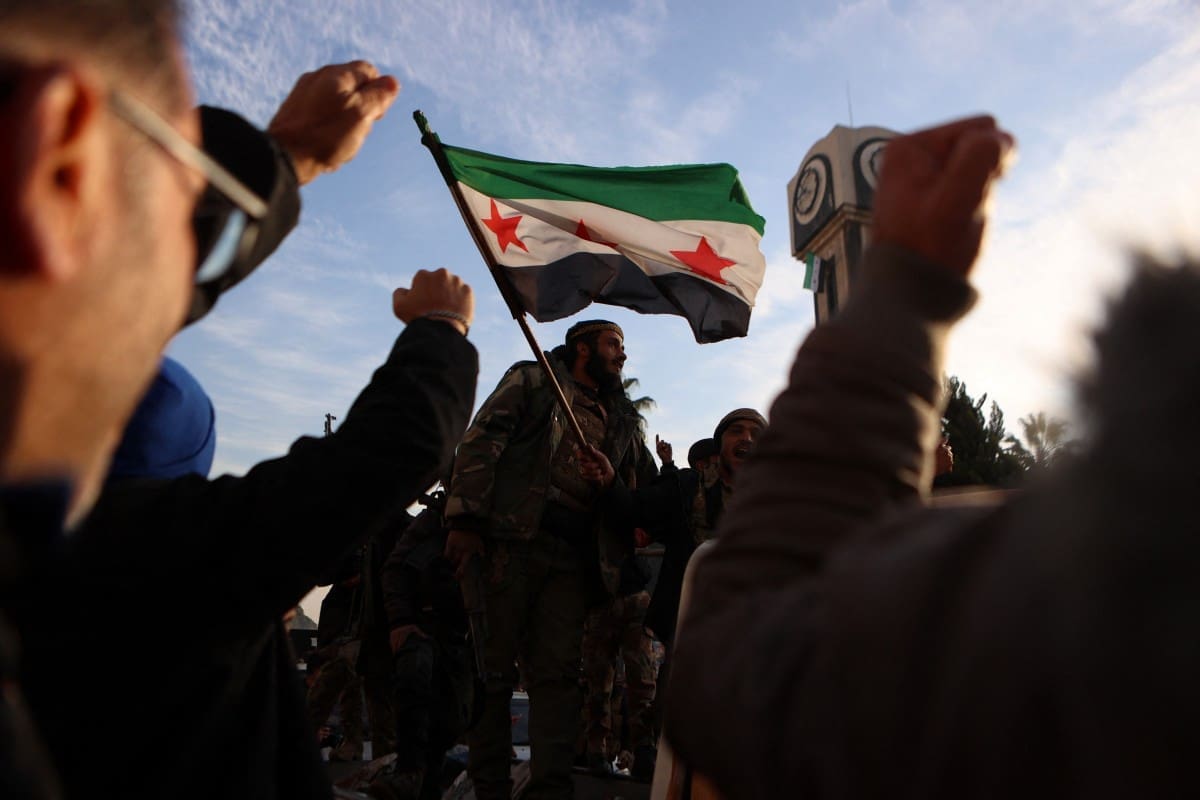Since October 7, 2023, Israeli cabinet ministers, political figures, military officers and media pundits have openly and endlessly incited for the destruction of Gaza and its Palestinian inhabitants. Already by December 2023, South Africa had compiled an extensive record of these statements for its submission to the International Court of Justice (ICJ) alleging that Israel… Continue reading Israel’s Admission of Genocide
Blog Category: Home Featured Blog
Syria Needs Full Sanctions Relief to Truly Rebuild
On May 13, U.S. President Donald Trump announced that he would lift all U.S. sanctions on Syria. The announcement, made during his historic visit to Saudi Arabia, was a miraculous reprieve for the people of Syria, who had been struggling to rebuild their country after a devastating 14-year civil war. On May 20, European Union… Continue reading Syria Needs Full Sanctions Relief to Truly Rebuild
Can the U.S. Keep Its Military Edge in Saudi Arabia?
During U.S. President Donald Trump’s recent visit to Saudi Arabia, Washington and Riyadh inked a landmark $142 billion defense agreement, heralded by the White House as the largest of its kind in history. The agreement forms part of Saudi Arabia’s $600 billion investment pledge for the U.S. economy and represents a considerable deepening of Saudi-U.S… Continue reading Can the U.S. Keep Its Military Edge in Saudi Arabia?
Could Trump’s Attack on Academia Be a Boon for the Gulf?
Prior to Donald Trump’s historic trip to the Gulf seeking investments for the American economy, the U.S. president was busy taking a wrecking ball to his country’s universities and research institutions. The Elon Musk-led Department of Government Efficiency, or DOGE, was decimating everything from medical research to the National Oceanic and Atmospheric Administration, and hundreds… Continue reading Could Trump’s Attack on Academia Be a Boon for the Gulf?
In Tripoli, A War on Militias Quickly Becomes a War of Militias
In the Libyan capital Tripoli, change is rarely peaceful or linear. This was starkly demonstrated once again in mid-May, when what like seemed a strategic victory for Prime Minister Abdul Hamid Dbeibah quickly spiraled into the latest in the country’s long string of political and military crises. The episode began when Abdelghani al-Kikli, the head… Continue reading In Tripoli, A War on Militias Quickly Becomes a War of Militias
Can Qatar Thread the Needle Between LNG Expansion and Carbon Reduction?
Qatar is poised to nearly double its liquefied natural gas (LNG) production capacity—from 77 million tons per year (mtpa) to an ambitious 142 mtpa—by 2030. In an era defined by climate anxiety and calls to cut fossil fuel use, this expansion may seem counterintuitive. However, ramping up LNG exports can help major coal-reliant economies cut… Continue reading Can Qatar Thread the Needle Between LNG Expansion and Carbon Reduction?
Will the PKK’s Historic Disbandment Transform the Turkish Republic?
On May 12, 2025, the Kurdistan Workers’ Party, or PKK, officially declared its dissolution after nearly five decades of armed insurgency against the Turkish state. The announcement was made in parallel congresses held in the Kandil Mountains and the Zap Valley, the two iconic strongholds of the movement in northern Iraq. Two hundred and thirty-two… Continue reading Will the PKK’s Historic Disbandment Transform the Turkish Republic?
Tensions Mount in the Sahel as Algeria and Mali Face Off
Long-simmering tensions between Algeria and Mali have threatened to boil over in recent weeks after a series of explosive incidents took place along their border. On April 1, Algeria shot down a Malian armed drone over Tin Zaoutine, a sensitive frontier zone. The two sides both claimed it occurred in their own airspace. In response,… Continue reading Tensions Mount in the Sahel as Algeria and Mali Face Off
Jordan Seeks to Balance Between Dissent and Stability
At the end of April, on the heels of allegations that 16 members of the Muslim Brotherhood had taken part in a foiled domestic terror plot, the Jordanian government moved to officially outlaw the organization. The Hashemite monarchy and the Islamist opposition group have had a tempestuous relationship for decades, but this decision appears to… Continue reading Jordan Seeks to Balance Between Dissent and Stability
How Trump’s Government Cuts Will Affect U.S. Foreign Policy
Spurred on by Elon Musk and the Department of Government Efficiency, or DOGE, the second Trump administration has embarked upon a campaign of massive disruption within the federal government that will have serious implications for U.S. foreign policy in the Middle East and North Africa (MENA). One of the primary targets is the State Department.… Continue reading How Trump’s Government Cuts Will Affect U.S. Foreign Policy
In Engaging the Haftars, Türkiye Makes Pragmatic Shift in Libya
Türkiye’s welcome of Saddam Haftar, son of eastern Libya’s de facto ruler Khalifa Haftar, was laden not only with ceremony but with implications for the North African country’s delicate balance of power. Walking down the red carpet in Ankara on April 4, the commander of land forces in his father’s self-styled Libyan Arab Armed Forces… Continue reading In Engaging the Haftars, Türkiye Makes Pragmatic Shift in Libya
Trumponomics, Tariffs and the Global Flight From the U.S.
The rise of “Trumponomics” has sharply heightened global trade tensions, economic uncertainty and market volatility. It is no overstatement to say that the U.S. administration’s erratic tariffs and policies risk the dissolution of the “rules-based order” established by the U.S. and the West after the second world war, severely eroding America’s global credibility and geopolitical… Continue reading Trumponomics, Tariffs and the Global Flight From the U.S.
The First 100 Days: Trump’s Middle East Policy Revisited
By any standard of the American presidency, the first 100 days of Donald Trump’s second term have been eventful, to say the least. From the dismantling of government institutions to the imposition of protectionist trade policies to the launching of negotiations with Iran and Russia, the implications of Trump’s early agenda have been far reaching… Continue reading The First 100 Days: Trump’s Middle East Policy Revisited
Will China Engage More on Middle East Security?
Since the launch of its Belt and Road Initiative in 2013, China has markedly expanded its trade, industrial investment and other economic activities in the Middle East. As its influence has grown, regional governments like Saudi Arabia, Iran and Türkiye have urged Beijing to play a greater role in the Middle East’s security affairs. These… Continue reading Will China Engage More on Middle East Security?
Seizing the Moment for Peace in Syria
As the Trump administration begins pulling U.S. troops out of Syria and openly mulling its long-term future there, the Syrian Democratic Forces (SDF)—a Kurdish-led coalition force—may soon lose its most important military and political backer. This possibility, and the wider geopolitical shifts it could bring, was likely a major factor in SDF General Commander Mazloum… Continue reading Seizing the Moment for Peace in Syria
Two Years In, Sudan War Shows Little Sign of Ending
As Sudan’s brutal civil war enters its third year, political and military developments on the ground have sparked speculation that a turning point may be near. But a closer look reveals a bleaker reality: an end to the conflict, whether through a political settlement or military victory, remains distant. More worrying, the recent shifts have… Continue reading Two Years In, Sudan War Shows Little Sign of Ending
U.S. Disengagement Spurs Turkish-European Defense Cooperation
As the United States’ long-standing commitment to European security erodes under the Trump administration, the bloc’s defense partnership with Türkiye hit a new milestone in March, when a consortium of Europe’s leading arms companies submitted a formal bid to sell Ankara 40 Eurofighter Typhoon jets. The fighters have seen active service in the air forces… Continue reading U.S. Disengagement Spurs Turkish-European Defense Cooperation
As Europe Adjusts to Life Without U.S. Security Umbrella, Lessons for GCC Abound
The Trump administration’s decision in early 2025 to suspend military aid to Ukraine—resuming it only after Kyiv agreed to negotiate with Moscow in March—marks a turning point in transatlantic security. It has forced Europe to reassess its strategic posture amid a conflict that began with Russia’s 2014 annexation of Crimea and escalated into a full-scale… Continue reading As Europe Adjusts to Life Without U.S. Security Umbrella, Lessons for GCC Abound
Trump is back. Should Gulf States accelerate decoupling from the U.S.?
Eight weeks into the second Trump presidency, the world’s governments—including those in the Gulf—are still trying to make sense of the chaos in Washington. Domestic politics aside, the new administration’s economic policies have sparked fears of a “Trumpcession” amid an escalating trade war and a falling dollar and stock market. Both consumer and business confidence… Continue reading Trump is back. Should Gulf States accelerate decoupling from the U.S.?
Abu Dhabi’s Quiet Engagement in Afghanistan May Ease Taliban Isolation
For nearly a decade, international diplomacy concerning Afghanistan was mainly mediated by Qatar. Yet since the Taliban rolled into Kabul in August 2021, leading figures from the movement have made a string of high-profile visits to another key Gulf powerbroker, the United Arab Emirates. Their warm reception by the Emirati authorities suggests that Abu Dhabi… Continue reading Abu Dhabi’s Quiet Engagement in Afghanistan May Ease Taliban Isolation
Trump’s Aid Cuts Sever Stalwart of U.S. Soft Power in the Middle East
Amid the whirlwind of executive orders and major policy shifts coming out of the White House, President Donald Trump’s decision to freeze the operations of the U.S. Agency for International Development (USAID), which administers most U.S. foreign assistance, threatens to have a wide impact around the world. If prolonged, many programs in countries across the… Continue reading Trump’s Aid Cuts Sever Stalwart of U.S. Soft Power in the Middle East
Rebuilding Forever: Lessons of our failures
*This article is the second part in a two-part series. Read Part 1 here. If Syria’s Arab Spring forerunners have a fundamental lesson to impart, it is that achieving a symbiosis between a revolution’s leadership and its public is required to successfully transmute a deposed tyranny into a nation of self-determination and the representative state… Continue reading Rebuilding Forever: Lessons of our failures
The Arab Plan for Gaza Has Two Problems: Israel and the PA
Egypt’s proposal for the reconstruction and administration of Gaza has emerged as an urgent intervention in the crisis that has unfolded since October 7, 2023. Backed by the Arab states, the Organization of Islamic Cooperation, and several European nations, the plan is not merely a humanitarian initiative—it is a geopolitical maneuver meant to counter the… Continue reading The Arab Plan for Gaza Has Two Problems: Israel and the PA
Is Russia Entering U.S.-Iranian Nuclear Negotiations?
A three-way dance is developing between Washington, Moscow and Tehran over Iran’s nuclear program. Recently, U.S. President Donald Trump sent a letter directly to Iran’s supreme leader, Ali Khamenei, asking to enter negotiations, while indicating to the media separately that the alternative would be military action to prevent Iran from acquiring nuclear weapons. Khamenei responded… Continue reading Is Russia Entering U.S.-Iranian Nuclear Negotiations?
Call to Disband PKK Reshapes Türkiye, Syria Power Dynamics
The consequences of the call by the founder of the Kurdistan Workers’ Party (PKK), Abdullah Ocalan, for the group to disband are still reverberating—not just in Türkiye but also in the wider region. Shifting alliances in Syria—exemplified by the recent agreement between the Kurdish-led Syrian Democratic Forces (SDF) and the Syrian government—confirm that Ocalan’s message… Continue reading Call to Disband PKK Reshapes Türkiye, Syria Power Dynamics
As Trump Imposes Tariffs, What Will U.S. Protectionism Mean for MENA and the Global Economy?
The United States has long been the world’s leading advocate for free trade, promoting it as a means of expanding global commerce and specialization in production that links economies into diversified supply chains. This has led to an unprecedented period of economic growth and poverty alleviation, a period anchored largely in an international rules-based order… Continue reading As Trump Imposes Tariffs, What Will U.S. Protectionism Mean for MENA and the Global Economy?
In Post-Genocide Gaza, Women Will Rise from the Rubble
On September 19, 2023, weeks before October 7 and the onset of the genocidal war that has consumed Gaza, 80 Palestinian women gathered in the blockaded territory to discuss the future. They were empowered leaders, successful entrepreneurs, professional businesswomen, committed academics and innovative engineers and scientists—all united under the umbrella of the Business and Professional… Continue reading In Post-Genocide Gaza, Women Will Rise from the Rubble
For Syria, Lessons from Our Past Failures
The Assad family, like so many tyrannies before them, allowed their power, impunity, isolation and the resultant narcissism to foster a belief that their world would never end. Assad’s supporters—both for the father, Hafez, and the son, Bashar—would chant “our leader forever.” Until the day inevitably came when their rule ended and people sang, “forever… Continue reading For Syria, Lessons from Our Past Failures
Fast-Moving Geopolitical Dynamics Challenge Yemen and the Houthis
The fall of the Assad regime in Damascus represents a critical turning point in the geopolitical landscape of the Middle East. Beforehand, Syria functioned as a strategic link supporting Iranian influence from Tehran to Beirut and onwards to Yemen’s capital, Sanaa, making it a crucial component in the so-called “Axis of Resistance.” Recent setbacks to… Continue reading Fast-Moving Geopolitical Dynamics Challenge Yemen and the Houthis
The Art of Disruption: How Trump’s Foreign Policy is Impacting MENA
Since returning to office on January 20, 2025, Donald Trump has issued 67 executive orders, more than double any other president in American history. Given that some of those orders have serious implications for the Middle East and North Africa, Afkār has compiled views from Middle East Council on Global Affairs scholars to analyze some… Continue reading The Art of Disruption: How Trump’s Foreign Policy is Impacting MENA
Will Trump Remove Syria’s New Rulers from America’s Foreign Terrorist List?
Since 1997, the U.S. State Department has compiled a catalog of organizations it considers foreign terrorists. The FTO list, as it is known, has become a powerful tool in Washington’s “war on terror,” by subjecting parties on the list to the weight of American delegitimization and economic sanctions. Moreover, the qualification and threshold for being… Continue reading Will Trump Remove Syria’s New Rulers from America’s Foreign Terrorist List?
Could the Russia-Iran Comprehensive Partnership Treaty Challenge Gulf Security?
On January 17, the presidents of Iran and Russia met in Moscow to sign a 20-year “comprehensive strategic partnership treaty.” The agreement, which focuses primarily on enhancing trade and security cooperation, comes as each country indirectly confronts the United States in conflicts with Ukraine and Israel, and on the heels of the abrupt toppling of… Continue reading Could the Russia-Iran Comprehensive Partnership Treaty Challenge Gulf Security?
In Multipolar World, Japan and GCC Should Develop Strategic Ties
In December, the Gulf Cooperation Council and Japan concluded their first round of discussions on a free trade agreement (FTA). History suggests this was the start of a process that may take years, if not decades—reaching an FTA between the GCC and South Korea took 15 years, with many bumps along the way. Nevertheless, this… Continue reading In Multipolar World, Japan and GCC Should Develop Strategic Ties
Maximum Pressure on Iran, Minimal Results
Among the top foreign policy issues Donald Trump faces in his second term are the perceived challenges and threats posed by Iran. To this end, Trump revived the “maximum pressure” campaign that characterized his approach to Iran in his previous term. At the same time, hawks in Washington are calling on the administration to support… Continue reading Maximum Pressure on Iran, Minimal Results
Why Trump’s Presidency Could Mean Closer EU-GCC Ties
The arrival of Donald Trump for a second term in the White House raises critical questions for the Middle East. Trump took office just days after a ceasefire deal aimed at ending a catastrophic 15-month war between Israel and Hamas, which had come close to dragging the region into an all-out conflagration. Now the president… Continue reading Why Trump’s Presidency Could Mean Closer EU-GCC Ties
Assad’s Fall in Syria Poses Serious Questions Inside Iraq
Recent developments in Syria, including the fall of the Assad regime, Iran’s failure to quell the rebel advance into Damascus and subsequent withdrawal of its proxies from the country, have generated shockwaves in neighboring Iraq. For the first time in Iraq’s post-2003 political history, the prospect of breaking Iran’s outsized influence over the Iraqi state… Continue reading Assad’s Fall in Syria Poses Serious Questions Inside Iraq
Will Europe’s Green Agenda Disrupt LNG Imports from Qatar?
The European Union’s ambitious climate goals have set it on a transformative path to sustainability, with policies like the Corporate Sustainability Due Diligence Directive (CS3D) leading the charge. But as these policies take effect, they risk unsettling the continent’s energy security. Qatar, one of Europe’s critical suppliers of liquefied natural gas (LNG), has warned that… Continue reading Will Europe’s Green Agenda Disrupt LNG Imports from Qatar?
TikTok Is Back, but for Whom?
U.S. users briefly lost access to popular social media platform TikTok earlier this week, following a legislative push to force the app’s Chinese-owned parent company to divest from its U.S. operations. While Donald Trump had endorsed the effort to ban the app during his first term, he recently reversed his stance, signing an executive order… Continue reading TikTok Is Back, but for Whom?
With a New Government in Charge, a New Era in Lebanon Beckons
The nomination of Nawaf Salam as Lebanon’s new prime minister alongside Joseph Aoun as president, after more than two years of political vacuum, is a momentous occasion heralding a new era for Lebanon. It can be an historical opportunity akin to the 1989 Taif Agreement, which formed the basis of ending Lebanon’s 15-year civil war… Continue reading With a New Government in Charge, a New Era in Lebanon Beckons
By Leveraging LNG, Qatar Can Fuel Fairness in Global Climate Policy
Imagine having a neighbor who spent decades accumulating massive debts to build a lavish mansion and enjoy a life of wealth and opulence. Now, when the debt collector arrives, the neighbor demands that everyone on the street—no matter how little they borrowed or their financial circumstances—share in the repayment burden. It is hard to imagine… Continue reading By Leveraging LNG, Qatar Can Fuel Fairness in Global Climate Policy
Will U.S. Sustain Pressure on Israel to Implement the Ceasefire Deal?
President-elect Donald Trump appears to have followed through with his promise to achieve a Gaza ceasefire before his inauguration on January 20. The incoming administration succeeded where the Biden administration failed, showing that U.S. pressure on Israel can lead to results. While many dismissed Trump’s threat that “all hell will break out” if the hostages… Continue reading Will U.S. Sustain Pressure on Israel to Implement the Ceasefire Deal?
MENA Outlook for 2025
With the December collapse of the Assad regime in Syria, 2024 came to a close in a dramatic and region-altering fashion. This, along with the numerous other major trend lines and points of conflict, likely makes 2025 a year that will be significant in reshaping the region’s future. Looking forward to what may be coming,… Continue reading MENA Outlook for 2025
With Axis of Resistance in Retreat, How Will Iranian People Respond?
Iran’s regional policy is on the backfoot. Years of patronage and investment in the “Axis of Resistance,” a network of friendly actors that share Iran’s hostility toward U.S. hegemony in the Middle East, has unraveled in a short period of time and caught the Iranian regime off guard. While Iran’s leadership scrambles for a response,… Continue reading With Axis of Resistance in Retreat, How Will Iranian People Respond?
Regional Economy Faces Plenty of Challenges—and Reasons for Hope—in 2025
Despite the turmoil rocking the Middle East and North Africa (MENA), there may be some glimmers of hope for the region’s economies in 2025. The World Bank and the International Monetary Fund (IMF) are both projecting an uptick in growth in most MENA economies. However, structural challenges, political instability, and geopolitical tensions will continue to… Continue reading Regional Economy Faces Plenty of Challenges—and Reasons for Hope—in 2025
A Crisis Averted in Palestinian Banking Portends a Total Collapse
In early December, the Palestinian banking sector narrowly avoided financial freefall, as Israel’s far-right finance minister toyed with removing a crucial safeguard underpinning the correspondent relationship between Palestinian and Israeli banks. These safeguards protect the Israeli side from domestic and international legal risks arising from transactions with their Palestinian counterparts, offering immunity and indemnity if… Continue reading A Crisis Averted in Palestinian Banking Portends a Total Collapse
Why Jihadist Groups Never Really Die
The lightening quick takeover of Syria by Hayat Tahrir al-Sham (HTS) led-fighters in an offensive that began on November 27 and ousted the 54-year old Assad regime by December 8, has been stunning. Indeed, the speed of developments has left many observers with more questions than answers, including on the character of the rebel forces,… Continue reading Why Jihadist Groups Never Really Die
Arab Public Opinion Under Pressure
Editor’s Note The relevance of public opinion in the Middle East and North Africa is a question often debated but little understood. Given the high prevalence of autocracy, surveys of popular sentiment are limited, while freedoms of speech and press are not the norm. Indeed, as thousands of political prisoners freed in recent days from… Continue reading Arab Public Opinion Under Pressure
Today Syrians Celebrate, Tomorrow the Real Work Begins
On December 8, the world awoke to stunning news. Overnight, rebel forces led by Hayat Tahrir al-Sham (HTS) had taken Damascus, facing little resistance as they entered the Syrian capital. Most of the state’s security agents and armed forces simply abandoned their positions and walked away. In an instant, the Assad regime’s fifty-four-year brutal rule… Continue reading Today Syrians Celebrate, Tomorrow the Real Work Begins
The Saudi Anticorruption Drive Moves Beyond Frying a Few Big Fish
Seven years ago, Saudi Arabia’s Crown Prince Muhammad Bin Salman, commonly referred to as MBS, launched a massive anticorruption crackdown. The campaign, which went on until 2019, ended in hundreds of high-profile arrests on charges of money laundering, bribery and extortion, among other things. It is thought to have amassed over $100 billion in recovered… Continue reading The Saudi Anticorruption Drive Moves Beyond Frying a Few Big Fish
As Syria Heats Up, Türkiye Finds Itself in the Spotlight
The sudden and dramatic developments in northern Syria—beginning in the outskirts of Idlib and surrounding villages near Aleppo and culminating in Syria’s second largest city falling into rebel hands—have thrust Türkiye—widely seen as the closest external power to the rebel factions—into a spotlight it neither sought nor fully avoided. The speed and ease with which… Continue reading As Syria Heats Up, Türkiye Finds Itself in the Spotlight

